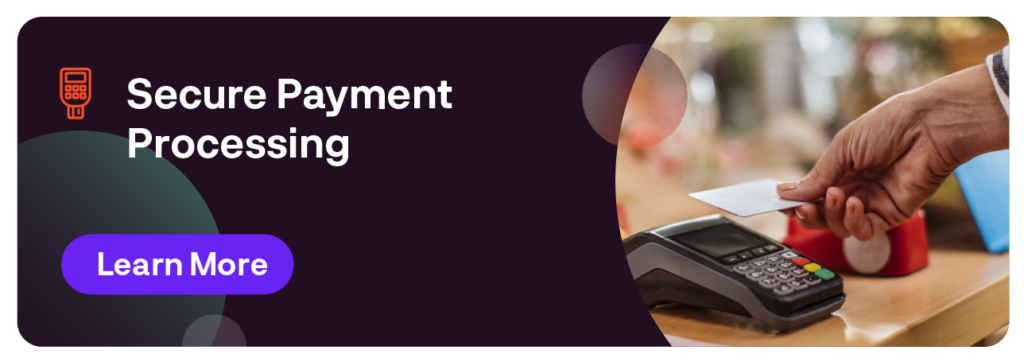In the fast-paced world of e-commerce, robust payment security is crucial. It not only fosters trust and reliability in digital transactions but also plays a vital role in maintaining consumer confidence and the integrity of online marketplaces. The necessity for secure payment processes is increasingly important, as it significantly influences consumer behavior and the overall success of e-commerce.
As e-commerce continues to evolve, advancing and adapting payment security methods remain paramount for protecting financial transactions and sustaining customer trust and business integrity.

Payment Security
Payment security encompasses a range of practices and technologies designed to secure financial transactions and protect sensitive information, such as credit card numbers and personal data, during online purchases. This security is vital in helping to prevent data breaches, fraudulent transactions, and identity theft, helping to protect both the merchant and the customer against potential cyber risks.
Protecting customer data is the cornerstone of customer trust and business reputation. In an era where data breaches are increasingly common, the need to protect customer data has never been more important. A breach can lead to significant financial losses, legal ramifications, and, most importantly, a loss of customer trust. Implementing robust security measures is essential in helping to mitigate these risks and maintain the integrity of the e-commerce ecosystem.
Enhancing Security with Advanced Technologies
In the e-commerce sector, enhancing security with advanced technologies is crucial for protecting transactions and maintaining customer trust. Integrating machine learning for fraud detection, adhering to PCI DSS compliance, and implementing multi-factor authentication (MFA) are key strategies to strengthen payment processes against cyber threats. Machine learning revolutionizes transaction security by analyzing vast amounts of data to identify patterns and anomalies indicative of fraud, enabling real-time detection and prevention. This adaptability ensures continual evolution of these systems, providing a robust defense against sophisticated cyber threats.
PCI DSS compliance is essential in helping to secure payments, setting a comprehensive framework for organizations handling credit card transactions. Compliance helps to maintain a secure environment, guarding cardholder data from unauthorized access and breaches, and is a commitment to the highest standards of payment security. Additionally, MFA has become a significant advancement in payment security. By requiring multiple verification forms, MFA significantly reduces the risk of unauthorized access and is particularly effective against phishing and identity theft, making it a crucial component of modern payment security strategies.
Overall, the use of advanced technologies like machine learning, adherence to PCI DSS standards, and the implementation of MFA are vital in the current digital landscape. These measures provide strong protection against fraud and unauthorized access, playing a critical role in building and maintaining consumer trust in online transactions.
Balancing Security with Customer Experience
Striking a balance between robust security measures and a seamless customer experience is crucial. Merchants face the challenge of creating a secure environment that safeguards customer data without imposing on the ease and convenience of the shopping experience. Additionally, understanding the interplay between transaction fees, payment security, and customer satisfaction is vital in maintaining this delicate equilibrium.
Balancing security with customer experience lies in the implementation of security measures that are both effective and user-friendly. Streamlined multi-factor authentication, for example, can provide strong security without causing significant inconvenience to the customer. Transparency is also key; clear communication about why certain security measures are in place can help customers appreciate their importance, reducing potential frustration. Simplifying security protocols without compromising their effectiveness ensures that customers feel safe without feeling burdened by overly complex procedures.

Future Trends in Payment Security for Merchants
In the evolving e-commerce landscape, merchants must proactively embrace future trends in payment security. This involves integrating emerging technologies and staying prepared for ever-evolving cyber threats and compliance standards. Technologies like blockchain are enhancing security with decentralized transaction records, while AI and machine learning revolutionize fraud detection by analyzing transaction patterns. Additionally, biometric verification methods are becoming more prevalent, offering a secure and user-friendly alternative to traditional passwords. Overall, the future of payment security for merchants demands a dynamic approach.
Practical Steps for Merchants to Secure Payments
In the current digital marketplace, it’s imperative for merchants to secure their payment processes to safeguard transactions and uphold customer trust. This involves a series of practical steps aimed at enhancing the security of payment systems and reducing the risk of fraud and data breaches.
Practical Steps for Merchants
- Implement Strong Encryption: Use robust encryption protocols for all transaction data to protect sensitive customer information during transmission.
- Use Secure Payment Gateways: Choose payment gateways that comply with PCI DSS standards to ensure secure processing of transactions.
- Employee Training: Regularly train employees on security protocols and best practices to minimize the risk of human error leading to security breaches.
- Integrate Security Tools:
- Address Verification Service (AVS): Implement AVS to verify the customer’s address, adding an extra layer of fraud prevention.
- Multi-Factor Authentication (MFA): Use MFA for customer accounts to provide an additional barrier against unauthorized access.
Regular maintenance of security systems is also a critical aspect of payment security. This includes:
- Software Updates: Keep all software, especially those related to security, up to date to defend against new cyber threats.
- Security Audits: Conduct routine security audits to identify and address potential vulnerabilities within the payment system.
- Compliance Checks: Regularly review and ensure compliance with the latest PCI DSS standards and other relevant regulations to maintain a secure and compliant payment environment.
By following these steps, merchants can significantly enhance the security of their payment systems. This not only helps in safeguarding against emerging cyber threats but also plays a crucial role in building customer trust and protecting the business in the digital marketplace.
Wrapping Up
To sum up, payment security in the digital marketplace is not a static goal but a continuous journey of learning and adaptation. As the digital world evolves, bringing new challenges and threats, merchants must remain vigilant and proactive in updating and refining their security strategies. This commitment to ongoing improvement in payment security is crucial not only for safeguarding business and customer data but also for establishing a reputation of reliability and trustworthiness. In the ever-changing realm of e-commerce, staying informed and adaptable is key to thriving in a landscape marked by constant technological advancements and emerging cyber threats.
Clearent by Xplor can provide you with a secure payment solution. Connect with us to start a conversation today.

by Clearent by Xplor
-
First published: February 23 2024
Written by: Clearent by Xplor
